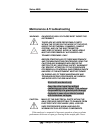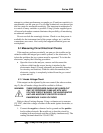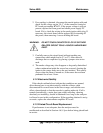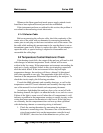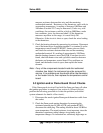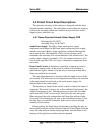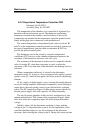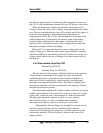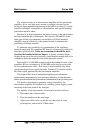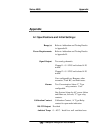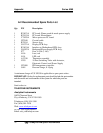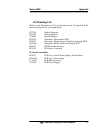
Maintenance Series 4060
72 Teledyne Analytical Instruments
5.5.2 Proportional Temperature Controller PCB
Schematic No. B-30974
Assembly Dwg. No. B-30927
The temperature of the chamber to be controlled is regulated by a
thermistor-directed electronic circuit. The thermistor and heating
element are located in the chamber, and the balance of the circuit
components are mounted on the temperature controller printed circuit
board, which plugs into a connector on the motherboard.
The control temperature is determined by the value of resistor R3
and C3 on the temperature controller printed circuit board, selected (at
the time of manufacture) from the chart on schematic B-30974 to
provide the desired control point.
The thermistor used in the circuit is a negative temperature
coefficient (NTC) device; as the chamber temperature increases, the
resistance of the thermistor decreases, and vice versa.
The resistance of the thermistor in the circuit is compared with the
value of resistor R3; when their resistance is equal, or when the
resistance of R3 is less than that of the thermistor, the heating circuit is
activated.
When a temperature deficiency is sensed by the thermistor,
integrated circuit A1, acting as a zero-crossing switch, applies a pulsed
signal to triac Q1, which in turn applies full wave power to the heating
element.
IC A1 employs a diode limiter, a zero-crossing (threshold) detector,
an on-off sensing amplifier (differential comparator), and a Darlington
output driver (thyristor gating circuit) to provide the basic switching
action. The DC operating voltages for these stages are provided by an
internal power supply, with only capacitor C4 added externally.
The on-off sensing amplifier in this circuit is configured as a free-
running multivibrator. This scheme adds proportional control, which
takes over when the comparator inputs are at the design differential
voltage.
Initially, when cold, the thermistor resistance is large, and the
voltage at pin 7 is larger than that at pin 8. As the temperature of the
controlled chamber begins to rise, the resistance of the thermistor
decreases, thus reducing the voltage at pin 8. During this warm-up time




